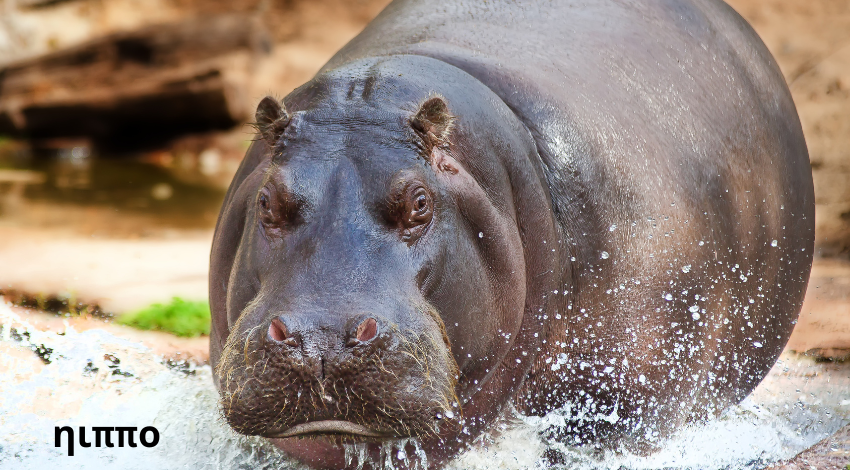“ηιππο”

Understanding “ηιππο”: The Ancient Greek Concept of the Horse historic Greece, pics of grand temples, philosophical debates, and legendary myths come to mind. But there may be another full-size element that galloped via the pages of Greek records: the pony, or “ηιππο” (hippo). This historic Greek time period for horse holds significant cultural, army, and financial importance inside the classical international.
Historical Background
The records of “ηιππο” is as antique as Greek civilization itself. Horses have been delivered to Greece around the second millennium BCE, playing a crucial role in society. In Greek mythology, horses regularly signify strength and nobility, acting in numerous myths and legends which have been exceeded down through generations.
Cultural Significance
Horses in ancient Greece have been more than just animals; they were symbols of reputation and power. In literature and art, horses represented freedom and power. They had been regularly depicted in numerous paperwork, from pottery to sculptures, highlighting their significance in Greek lifestyle.
Mythological References
Greek mythology is replete with references to horses. Pegasus, the winged horse born from the blood of Medusa, is one of the maximum famous mythical creatures. Another tremendous reference is the divine horses of Achilles, which had been stated to be born of the wind gods and recognized for their extraordinary pace and electricity.
Horses in Greek Warfare
In battle, horses had been essential. Greek cavalry units, although now not as renowned as their infantry, performed vital roles in numerous battles. The Battle of Marathon, for example, saw powerful use of cavalry, which helped secure Greek victories.
Horse Breeding and Care
The Greeks had been professional in horse breeding and care. They developed numerous breeds, such as the Thessalian horses, recognized for their staying power and power. Ancient texts detail the meticulous care Greeks supplied, from weight loss program to schooling regimens, making sure their horses have been in peak situation.
Equestrian Sports
Horses had been principal to various sports in ancient Greece, particularly in the Olympic Games. Events like chariot racing and horseback driving showcased the prowess and talent of each horse and rider. These competitions have been not simplest famous however also a way to display wealth and status.
Economic Impact
The financial effect of horses in historical Greece became massive. They had been crucial for exchange, each as transportation and as precious commodities themselves. The cost of maintaining horses was excessive, making them symbols of wealth and social standing.
Training and Riding Techniques
Greek strategies for education and riding had been advanced for his or her time. They evolved specific strategies that emphasised the bond between horse and rider, many of which encouraged modern-day equestrian practices. The writings of Xenophon, a Greek historian and soldier, offer valuable insights into these techniques.
Religious and Ritualistic Roles
Horses additionally held non secular and ritualistic importance. They were regularly a part of sacrifices and ceremonies, believed to be sacred animals that would connect with the divine. Various rituals concerned horses, from processions to sacrificial offerings, emphasizing their religious importance.
Philosophical Perspectives
Greek philosophers had diverse perspectives on horses. Plato and Aristotle, as an instance, regularly used horses of their analogies and teachings. They regarded the horse as a metaphor for various human developments and societal roles, reflecting its importance in philosophical discourse.
Artistic Depictions
The inventive depiction of horses in historical Greece is a testomony to their revered status. From the friezes of the Parthenon to complex pottery designs, horses had been a not unusual motif. These artistic endeavors now not best displayed the beauty of horses however also conveyed messages about electricity and nobility.
Horses in Greek Daily Life
In daily life, horses were integral for agriculture, transportation, and communication. Owning a horse turned into a status image, regularly restricted to the wealthy elite. They had been used to plow fields, pull carts, and facilitate tour across the rugged Greek terrain.
Technological Advancements
The Greeks made several technological improvements in horse tools and system, which includes saddles, bridles, and chariots. These innovations advanced the performance and effectiveness of horses in diverse roles, from agriculture to warfare, considerably impacting Greek society.
Conclusion
The legacy of “ηιππο” in historical Greece is profound and enduring. Horses have been not just animals; they have been essential to Greek culture, economy, and mythology. Their have an impact on remains felt these days, shaping present day equestrian practices and persevering with to captivate our imaginations.
FAQs
What does “ηιππο” mean?
“ηιππο” (hippo) is the historical Greek phrase for horse. It symbolizes energy, nobility, and freedom in Greek way of life.
How have been horses utilized in historic Greek warfare?
Horses were used in cavalry devices, supplying mobility and strategic benefits in battles. They played important roles in well-known conflicts just like the Battle of Marathon.
What is the significance of Pegasus in Greek mythology?
Pegasus, the winged horse, is a image of idea and heroism. Born from the blood of Medusa, Pegasus is one of the most iconic creatures in Greek mythology.
How did the Greeks take care of their horses?
The Greeks employed meticulous care for their horses, consisting of specialized diets and schooling regimens. They developed breeds like the Thessalian horses, recognised for their strength and persistence.
What have an effect on did historic Greek horse practices have on modern equestrian strategies?
Ancient Greek strategies of schooling and driving horses, specifically the ones documented by Xenophon, have appreciably encouraged modern-day equestrian practices, emphasizing the bond among horse and rider.


